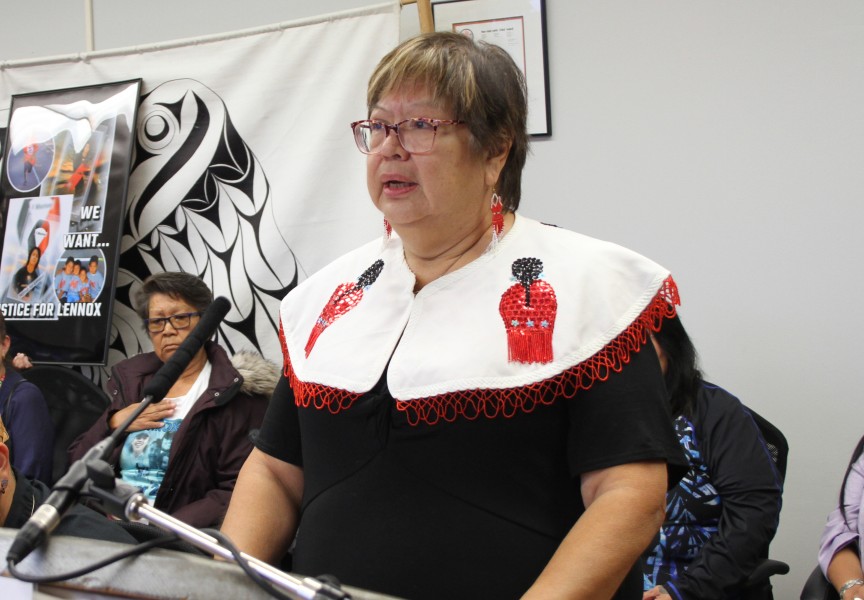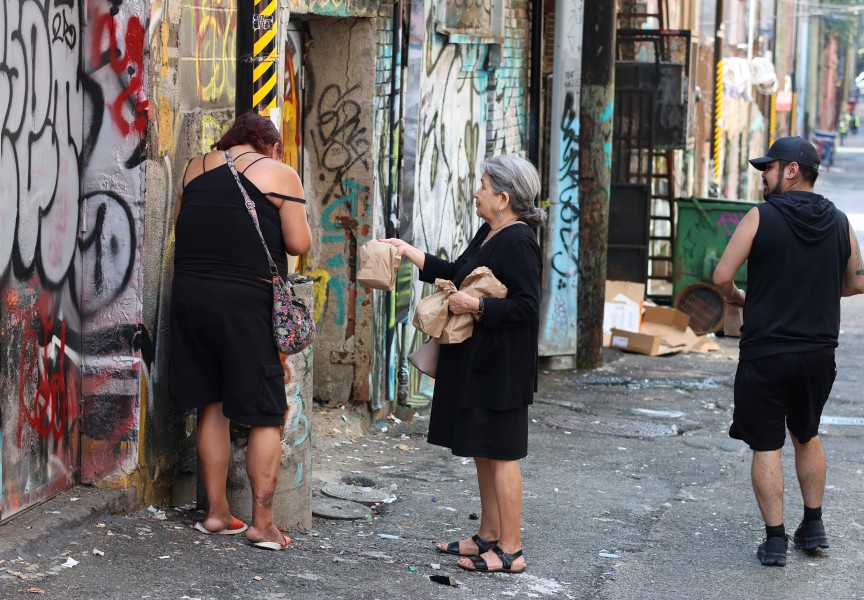On June 13, 25 years after Nuu-chah-nulth Nations signed a declaration publicly recognizing the right of Nuu-chah-nulth women to live lives free of violence, leaders in B.C. today officially committed to ending violence against Aboriginal women and girls.
Today, Premier Christy Clark and Aboriginal Relations and Reconciliation Minister John Rustad, joined representatives of the Assembly of First Nations-BC, the Union of BC Indian Chiefs, B.C.’s Advisory Council on Aboriginal Women, and Metis Nation B.C., to sign a memorandum of understanding (MOU) confirming a shared commitment to end violence.
The MOU outlines the shared priorities, core relationship and implementation principles, intended outcomes and actions required to see the end of such forms of violence as lateral violence and domestic or stranger violence committed against aboriginal women and girls.
“I wanted to start by reminding everyone that if you look at the statistics, this morning, while we’ve been sitting here, somewhere in Canada an aboriginal woman has been beaten,” said Hugh Braker, chief councillor of the Tseshaht First Nation and recognized witness to the signing. “If you look at the statistics, in the time that we have been sitting here this morning, somewhere in Canada an aboriginal child has been abused.”
Braker said Nuu-chah-nulth Nations have faced an ongoing struggle for the last 25 years since signing its own declaration to end violence against women.
See the Nuu-chah-nulth Declaration here: http://www.hashilthsa.com/news/2014-06-13/declaration-nuu-chah-nulth-women
“We’re able to look at the chiefs in the room and say you’ve got a long walk ahead of you,” he said. “This is not something that a few words one day is going to cure. This is something that’s going to be a lifetime struggle for all aboriginal people.”
Deb Foxcroft, president of the Nuu-chah-nulth Tribal Council, also attended the Summit. She said she was happy to see this problem, which has concerned Nuu-chah-nulth communities for so long, receive recognition.
“It’s a priority,” she noted. “Hopefully, this MOU has teeth to it and that there’s really action to words.”
Foxcroft said women in Nuu-chah-nulth communities detailed how they wanted to be treated and respected through the declaration they developed in 1989. This MOU, she says, is a sign that the province is taking the issue more seriously.
“I think this is a good start for the whole province,” she added. “I think there needs to be that education awareness on an ongoing basis because … everyone needs to take responsibility to ensure that our children, young girls and women are safe and protected and treated respectfully. Women and men need to take that responsibility in our communities.”
Domestic violence, Clark said, is a crime that its perpetrators make sure we never see. “It is hidden.”
“Victims live with shame, they live with guilt, they live with the fear that if they speak out, it will only get worse.”
Clark said public recognition is an important step in acknowledging the impact of domestic violence, because “it gives permission for victims and for those who witness it to speak out.”
“It isn’t just … the provincial government that makes a difference,” she said. “It’s members of every community who are prepared to make a commitment to stand up and rescue those they see in trouble. To save the women and children who are the victims of violence in their communities. To step in, to take that risk and to speak out for victims who have lost their voice.”
The B.C. government has committed $400,000 to the Giving Voice initiative. It will help Aboriginal communities speak out to take action on the issue. The project was funded $120,000 in 2013/14.
This past February, the Provincial Office of Domestic Violence released the Provincial Domestic Violence Plan, which is a three-year, $5.5 million plan. It includes $2 million to develop and deliver programs for aboriginal women, men and children affected by domestic violence.
Provincial Domestic Violence Plan: www.mcf.gov.bc.ca/podv/pdf/dv_pp_booklet.pdf
As for Braker, he said he was going to return to his community to share what he witnessed at the summit.
“The vast majority of Aboriginal women who suffer from violence suffer in the home and it was at a meeting of the chiefs that came together and said this must stop,” he said. “We, the chiefs of B.C., are going to do our part to stop it and that is important.
“I’m going to tell the people that everyone in this room realized that as long as aboriginal children go to bed crying at night because they were abused, as long as aboriginal women in this province go to bed crying at night because they were beaten, there will never be self government. … We’re going to do everything in our power so when people go to sleep tonight in our communities, they go to sleep healthy, happy and, most importantly, they go to sleep loved.”
Related: http://www.hashilthsa.com/news/2014-06-11/open-letter-assembly-first-nations
Quick Facts:
According to a report recently published by the RCMP, there are 1,181 cases of murdered/missing aboriginal women over the last three decades in Canada: 1,017 are homicides, 164 considered missing; 225 of the total cases remain unsolved.
B.C. has the highest percentage of suspicious death cases in Canada, according to the Native Women’s Association of Canada. Most of the cases involve young women and girls under 31 years of age.






